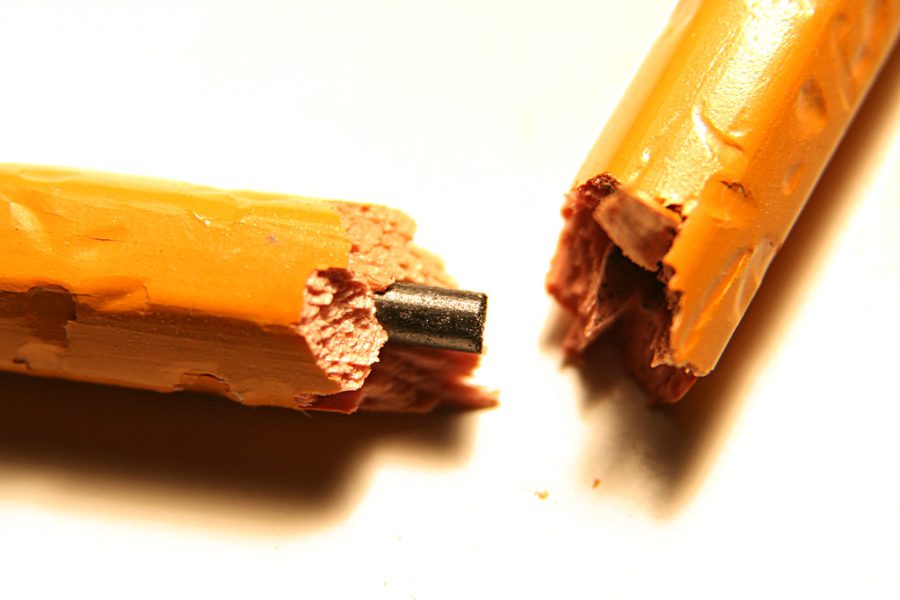The Problem with Toxic Hustle Culture
Hustle culture is defined as a lifestyle where career has become such a priority in your life that other aspects of being human often take a back seat. I will be exploring how it’s harmful and toxic to many people.
One thing I will definitely remember after graduating high school would be the jam-packed schedules we all have right now. However, this type of schedule where we are all forced to work every minute of the day never seems to end. This is because of toxic hustle culture.
Hustle culture is the idea that to have a successful life, you need to be constantly working every minute in your life. Breaks need to be earned and you need to be better than everyone else. Unfortunately, this idea is very prevalent at our school. Many students feel pressured to take hard classes, be involved in many extracurriculars, and still have a social life even though they might not have the time or energy. This happens because of the toxic grind culture we have at West High. You can see by now that this type of thinking is toxic for a multitude of reasons.
We have all felt the effect of hustle culture in our lives, especially as high schoolers. Many students around the world and at West are hyper competitive and feel the need to be the best at everything. The reasoning for this is the idea that becoming a successful adult means having a well-paying job and constantly achieving goals. At a young age, I know we have all been told this. The pressure that I and many others feel to perform well and be great at everything takes a severe toll on our mental health. I also know that to get a well-paying job, you need to attend a good university and perform well there. This is why high schoolers are hyper competitive.
However, it isn’t normal to always be busy. When the pandemic came, many people were forced to have free time and this changed many people’s perspectives about how they had been living their lives. They realized how stressed they were and how nice it was to take a break. Now, things are slowly starting to get back to normal but people aren’t ready for it. In fact, the Center on Budget and Policy Priorities stated there were 4.2 million fewer jobs in October 2021 than in February 2020. Many people who are working feel tired and overworked all the time. The culprit for both of these problems? Toxic hustle culture.
While I’ve already explained how toxic hustle culture is bad for your mental health, it can also be detrimental to your physical health. According to UW Medicine, many adults who work overtime and experience burnout are associated with a higher chance of having high blood pressure, cardiovascular diseases, atrial fibrillation, and depression, just to name a few. If that doesn’t sound bad, Race To A Cure stated that someone working more than 45 hours a week is more likely to experience burnout symptoms, like making mistakes at work. Also, when the body is under stress, a hormone called cortisol is released. Cortisol can make you feel motivated and give you some energy to finish your work. However, according to Coopersquared, continuous release of cortisol can result in significant health impacts, including inflammation, anxiety, and even heart disease just because of more cortisol. All this evidence proves that working too hard not only impacts your mental health but also your physical health.
Some people might say that hustle culture isn’t toxic, since it’s productive and if balanced right, hustle culture won’t be detrimental. However, even though it’s productive, it can easily turn into toxic productivity, which is the desire to be productive at all times. Also, hustle culture can be okay if balanced, but most of the time, people push themselves too hard before realizing that it’s becoming harmful for their personal wellbeing.
Critics might also state that the opposite of toxic hustle culture, which is apathy, is even worse. The idea of apathy is that doing nothing is better than trying. Also, lazy and unmotivated people might be trying to criticize toxic hustle culture just because they can’t achieve their goals. However, many people who aren’t actively achieving their goals are usually struggling with other things at the time. Also, comparing two toxic work ethics doesn’t change the fact that hustle culture is still toxic and detrimental.
As you can see, hustle culture is toxic to everyone in society. It negatively impacts our mental and physical health, while perpetuating the idea that constantly working is normal. Nobody has to work for a break and we all need time to take care of ourselves. Sometimes, it can feel as if it’s impossible to escape hustle culture. However, there are some solutions. Having meditative practices or just taking 10 minutes of silence does wonders for your mental health. Also, remember to take breaks. Breaks shouldn’t be used to scroll through TikTok, since it won’t help you relax. In fact, according to Bustle, apps like Tiktok trigger your limbic system, which can make you feel more stressed. Instead, take a walk outside or grab a drink. This will let your mind and body actually relax and feel ready for any new tasks you have to accomplish. Remember that success doesn’t come in one day and taking things one step at a time will help you achieve anything.
Your donation will support the student journalists of West High School. Your contribution will allow us to purchase Scholarship Yearbooks, newsroom equipment and cover our annual website hosting costs.

Outside the newsroom, you’ll find her playing the violin or volunteering at Mercy Clinics. In her free time, she likes to read and spend time with her...




